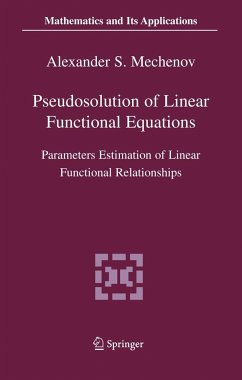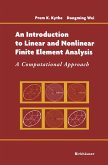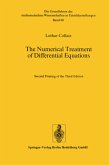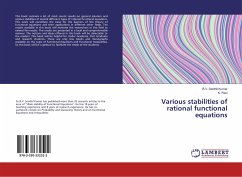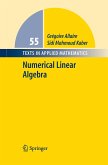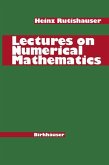This book presents the author's new method of two-stage maximization of likelihood function, which helps to solve a series of non-solving before the well-posed and ill-posed problems of pseudosolution computing systems of linear algebraic equations (or, in statistical terminology, parameters' estimators of functional relationships) and linear integral equations in the presence of deterministic and random errors in the initial data. This book, for the first time, presents a solution of the problem of reciprocal influence of passive errors of regressors and of active errors of predictors by computing point estimators of functional relationships. Audience This book is intended for students, postgraduate students, scientists, and other researchers on handling economical and technical data. The book is especially intended for those who constantly use regression analysis in their own research and for those who create the mathematical software for computers.
Hinweis: Dieser Artikel kann nur an eine deutsche Lieferadresse ausgeliefert werden.
Hinweis: Dieser Artikel kann nur an eine deutsche Lieferadresse ausgeliefert werden.
From the reviews of the first edition:
"This book presents a method of two-stage maximization of a likelihood function, which helps to solve a series of non-solved before well-posed and ill-posed problems of pseudosolution computing systems of linear algebraic equations ... . This book is intended for students, postgraduate students, scientists, and other researchers handling economical and technical data. It is especially intended for those who constantly use regression analysis in their own research and for those who create mathematical software for computers." (Yuehua Wu, Zentralblatt MATH, Vol. 1077, 2006)
"This book presents a method of two-stage maximization of a likelihood function, which helps to solve a series of non-solved before well-posed and ill-posed problems of pseudosolution computing systems of linear algebraic equations ... . This book is intended for students, postgraduate students, scientists, and other researchers handling economical and technical data. It is especially intended for those who constantly use regression analysis in their own research and for those who create mathematical software for computers." (Yuehua Wu, Zentralblatt MATH, Vol. 1077, 2006)

